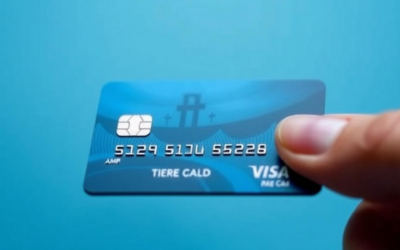Definition of business bank account
A business bank account is an account created especially for business transactions. It works independently of your personal finances. It also provides a specific area for effectively managing the money coming in and going out of your company.
What do I need to open a business bank account?
Establishing your company’s financial infrastructure begins with opening a business bank account. A dedicated business account can help any size of organisation, from startups to well-established businesses, with improved financial organisation, legal compliance, and reputation. In the United Kingdom, the following documents are normally required to open a business bank account:
1. Business information
Name: Your registered business name, which should match the name on your incorporation documents or business registration.
Business address: The physical address of your business premises. This may differ from your personal address.
Business structure: Details about your business structure, such as whether you’re a sole trader, partnership, limited liability partnership (LLP), or limited company (Ltd).
2. Identification documents
Personal identification: Valid identification documents for all individuals associated with the account, including directors, partners, or shareholders. This usually includes a passport, driving licence, or national identity card.
Proof of identity: Some banks may require additional proof of identity, such as a utility bill or bank statement, to verify your residential address.
3. Proof of business registration
Certificate of incorporation: Companies House issues a certificate of incorporation for limited companies.
Business registration certificate: If you’re a sole trader or partnership, you may need to provide evidence of your business registration, such as a business registration certificate or tax registration documents.
4. Business plan (for startups)
Executive summary: A concise overview of your business, including its products or services, target market, and unique selling proposition (USP).
Financial projections: Forecasts of your business’s financial performance, including revenue projections, expenses, and cash flow forecasts.
Market analysis: Information about your industry, competitors, and target market demographics.
5. Tax information
HM Revenue & Customs (HMRC) issues your Unique Taxpayer Reference (UTR) number, which serves as your tax identification number. If your business has a VAT registration, you must present your VAT registration certificate.
6. Additional requirements
Business licences or permits: Depending on your industry, you may need to provide the licences or permits required for operating your business legally.
Business banking history: If you’re switching banks or opening multiple accounts, some banks may request information about your previous banking history or financial statements.
It’s important to confirm the specific requirements of the bank you plan to apply to before applying for a business bank account, as these can differ between financial institutions. Furthermore, having all the required paperwork and data on hand helps speed up the account opening procedure. It also guarantees a seamless transfer while efficiently managing your company’s funds.

How long does it take to open a business bank account?
The complexity of your application and the bank you choose will determine how long it takes to open a business bank account. In general, it could take a few days to a few weeks. On the other hand, OneMoneyWay’s streamlined procedure guarantees faster setup periods, freeing you up to concentrate on expanding your company without needless delays.
Do you need a business bank account?
One of the most important decisions any business owner must make is whether or not to open a business bank account. Even though having a separate business account could seem like an extra administrative burden, the advantages far outweigh any potential drawbacks. Here’s a thorough explanation of the benefits of having a dedicated business bank account:
Legal compliance
Funds segregation: Keeping your personal and corporate funds separate is one of the main benefits of having a business bank account. Combining personal and business finances might result in legal issues, particularly concerning liability protection and tax reporting.
Considerations for sole traders: It’s a good idea to have a separate business account even if you operate as a lone proprietor. Despite not being legally required, maintaining a separate business account simplifies accounting and ensures a clear separation of personal and business costs, thereby simplifying the management of corporate income and expenses for tax purposes.
Professionalism and credibility
Better professional image: Keeping an independent business account gives your business interactions a more sophisticated appearance. It proves to customers, vendors, and business partners that you take your company’s financial management seriously.
Building trust: Payments sent to a business account, as opposed to a personal one, give clients and consumers more faith in the authenticity and dependability of your company.
Easier financial management
Streamlined accounting: Separating personal and business finances simplifies accounting procedures, reducing the risk of errors and ensuring accurate financial reporting. When you have to account for business spending and deductions during tax season, this distinction becomes especially important.
Planning and budgeting: You can track income and expenses, keep an eye on your company’s cash flow, and produce more precise budgets and financial predictions if you have a specialised business account. This visibility enables better decision-making and strategic planning for your company’s expansion.
Access to business banking services
Business-specific features: Business bank accounts often come with additional features tailored to business needs, such as overdraft facilities, merchant services, and business credit cards. These services can help you manage your finances more efficiently and access essential banking tools to support your business operations.
Business loans and financing: Having a business account establishes a financial track record for your business, making it easier to qualify for business loans, lines of credit, or other forms of financing when you need to invest in your business’s growth.
Risk mitigation
Liability protection: Keeping your personal and business money separate will assist in shielding your personal assets from any legal troubles or debts your company may accrue. You lower your danger of suffering a personal financial loss as a result of business-related problems by keeping your personal finances segregated.
Having a distinct business bank account is essential for legal compliance, professionalism, financial management, and risk mitigation, even if it could seem like an extra administrative task. With OneMoneyWay, you can take advantage of the security and convenience of contemporary banking technology, along with all the necessary banking services and features to support the financial success of your business.
Why choose OneMoneyWay for your business banking needs?
We at OneMoneyWay are aware of the difficulties faced by entrepreneurs and small business owners. Despite not being a traditional bank, we provide all the services you would expect from one, with a focus on serving contemporary companies. OneMoneyWay offers a comprehensive financial management platform that encompasses everything from business accounts and cards to currency conversion and international transactions. Our intuitive UI and excellent security features guarantee a flawless banking experience. Additionally, our committed support staff is available to help you at every turn.
Ready to Elevate Your Business?
Join OneMoneyWay for modern FinTech solutions. Empower your business today!
FAQs
Can I open a business account if I’m a sole trader?
Yes, even if you’re a sole trader, it’s advisable to open a separate business account to keep your personal and business finances separate.
Is there a minimum deposit required to open a business account with OneMoneyWay?
No, OneMoneyWay offers flexible account options with no minimum deposit requirements, making it accessible for businesses of all sizes.
How secure is OneMoneyWay for business transactions?
Security is our top priority at OneMoneyWay. We employ robust encryption protocols and advanced security measures to safeguard your sensitive financial data.
Understanding what a business account is and why it’s essential is paramount for any entrepreneur or small business owner. OneMoneyWay provides essential banking services and a dependable partner committed to your business’s financial success. Start your journey with us today, and experience banking made simple.







